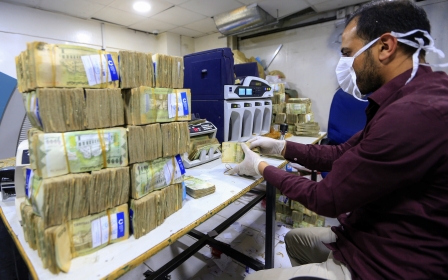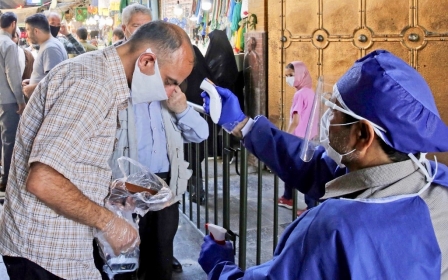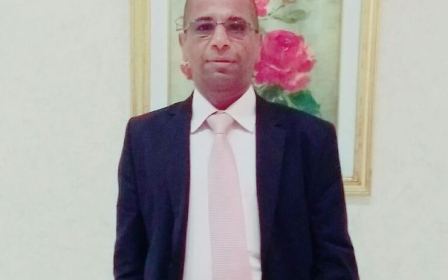Arabic press review: Tunisia's largest trade union faces corruption probe
Tunisian General Labour Union under scrutiny
Tunisia’s largest trade union, the Tunisian General Labour Union, has refused to disclose its financial records and accounting reports following allegation of corruption that emerged last year, news website Arabi21 reported.
Former Tunisian MP Imad Daymi told the website that several of the union's members had been receiving salaries from the government, in contravention of the law.
“This matter has been around since Ben Ali times and continues until now, even though it is an illegal behaviour,” he said, referring to Tunisia’s former leader, who was ousted in 2011 by the wave of demonstrations known as the Arab Spring.
Daymi had asked the union to disclose its financial records and provide details about its collection of government funds, utilising Tunisia’s “very fine and excellent system related to the citizen's right to access information”, he said, but the group refused the request.
In December 2019, an independent judicial body issued a decision in favour of Daymi, obliging the union to reveal these data.
Arabi21 published a copy of the Access to Information Authority’s judgment issued against the union, which obliged it to disclose its financial and accounting records and to reveal the names of its members who'd received money and monthly salaries from the government.
However, the union failed to comply with the judicial body’s guidance, said Daymi, leading him to found an independent institution called “Monitoring Observatory” to fight corruption and monitor public institutions in Tunisia.
He told Arabi21 that he also left political and parliamentary work in order to ensure the independence of the observatory, which has recently put its hands on a number of corruption cases in the country.
Last month, official documents were published to reveal the complete wealth of Rached Ghannouchi, Tunisia’s parliament speaker and leader of the Ennahda party, following reports claiming his wealth had increased greatly in recent years.
Covid-19 outbreak at UAE prison
Approximately 30 prisoners in Abu Dhabi have been confirmed to be infected with coronavirus as a result of poor prison conditions, prompting UAE human rights activists to call for the release of detainees, London-based newspaper Al-Quds Al-Arabi reported.
"A reliable source informed me that there is an outbreak of Covid-19 virus in al-Wathba prison, in Abu Dhabi, and there are confirmed infected cases that are not yet known. They banned visiting the detainees and a state of emergency was declared,” rights activist Abdullah al-Tawil told the newspaper.
The conditions inside al-Wathba, a notorious prison dubbed the "Guantanamo Bay of the UAE" in western Abu Dhabi, had also led some inmates to commit suicide, he said.
"It is now necessary to press for the release of all detainees in al-Wathba, so that we will not lose many of them,” Tawil added.
Among the Wathba prisoners infected with coronavirus was Omani detainee Abdullah Al-Shamsi, who had been in detention since 2018 and was sentenced to life in prison last month for alleged links to Qatar, the Emirates Centre for Human Rights confirmed.
Shamsi was under 21 at the time of his arrest, activists said, and his mother had posted a message on Twitter reading: "Your prayers to Abdullah al-Shamsi. He is now in isolation in al-Wathba prison. May God heal you my son.”
Coronavirus sees 40 percent of Jordanians jobless
About 40 percent of Jordanians have lost their jobs between mid-March and mid-May due to the coronavirus pandemic, according to a study conducted by the Phenix Centre for Economic and Informatics Studies.
The independent research institution carried out a survey in the third week of May, aiming to “identify the effects of coronavirus on the economic conditions of families in Jordan”.
The study found that about 40 percent of Jordanians had lost their jobs entirely, 37 percent lost their jobs partially, while only 23 percent were not affected by the crisis.
Furthermore, the survey found that 39 percent of Jordanian families were forced to borrow money to get through the pandemic, while 25 percent had to dip into their savings to cover their needs. About 20 percent of all respondents had received aid or donations from relatives or friends.
Jordan has one of the lowest rates of coronavirus infection in the Middle East, with just over 700 cases of Covid-19, including nine deaths.
When Jordan reported its first case of Covid-19 on 2 March, the kingdom implemented one of the world's strictest lockdowns, prompting chaotic scenes across the country.
Egyptians demonstrate in Qatar
Dozens of Egyptians stranded in Qatar staged a protest on Sunday outside the Egyptian embassy in Doha, demanding that Cairo bring them home, according to Alkhaleej Online, which specialises in Gulf news.
Since the beginning of the coronavirus pandemic, hundreds of Egyptian expats have lost their jobs in the Gulf. The contracts of many Egyptian workers in Qatar and other countries have not been renewed.
On Sunday, protesters raised their passports amid chants demanding to be returned to their country.
"I don't care about politics; I want to return to my country and my family,” read the banners held up by the protesters.
In early April, Qatar said the Egyptian authorities had rejected the repatriation of Egyptian citizens.
"The concerned authorities in the country have allocated a plane to transport Egyptians to their country, but they were surprised that the Egyptian authorities refused to receive them without giving any reasons,” Anadolu Agency quoted an official source in Qatar as saying at the time.
* Arabic press review is a digest of reports that are not independently verified as accurate by Middle East Eye.
Middle East Eye propose une couverture et une analyse indépendantes et incomparables du Moyen-Orient, de l’Afrique du Nord et d’autres régions du monde. Pour en savoir plus sur la reprise de ce contenu et les frais qui s’appliquent, veuillez remplir ce formulaire [en anglais]. Pour en savoir plus sur MEE, cliquez ici [en anglais].




